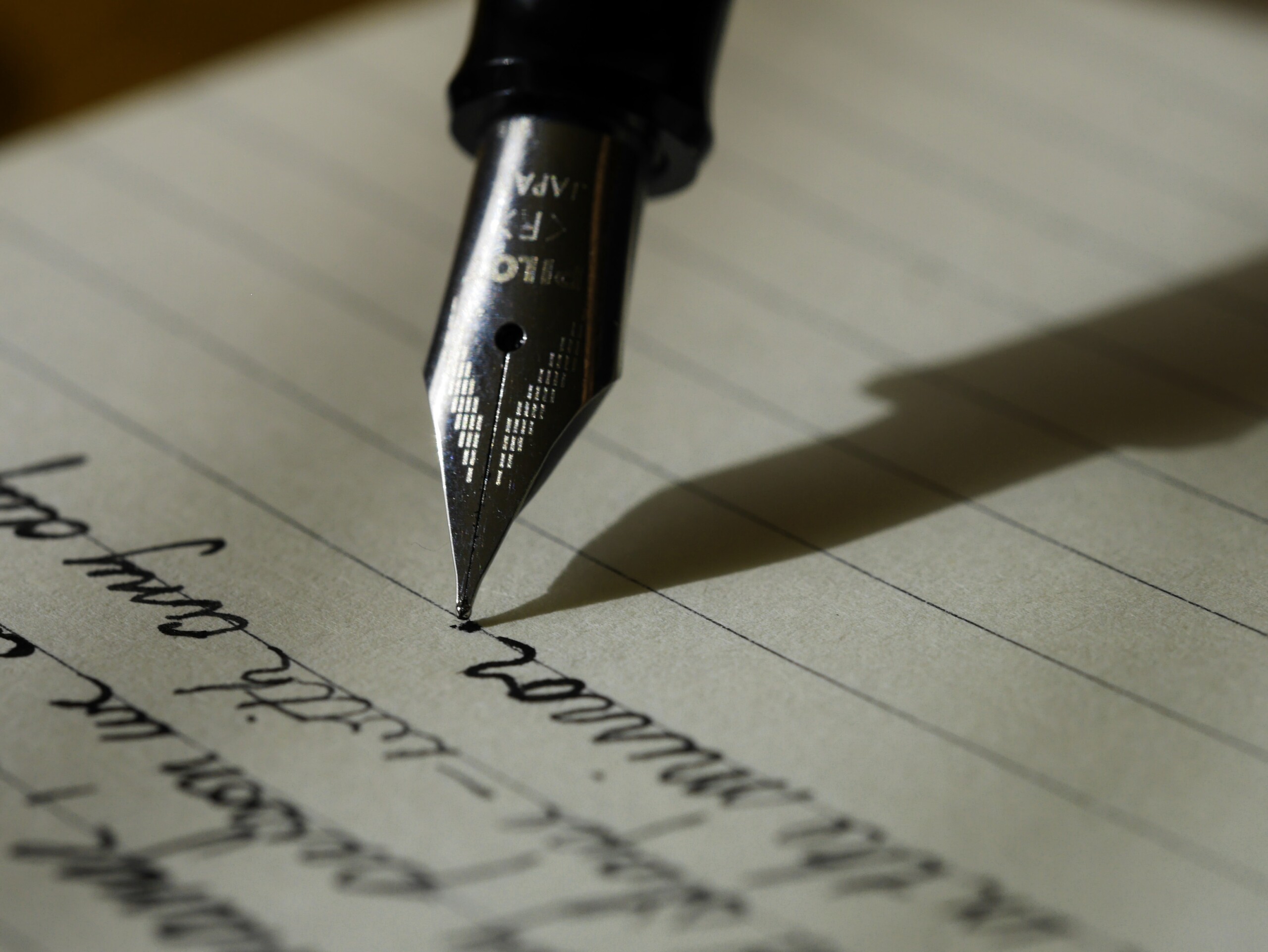Today is Fountain Pen Day
The first Friday in November is “Fountain Pen Day” in Germany. On the one hand, this day is intended to focus on the use of fountain pens and, on the other hand, to revive beautiful writing by hand.
The American insurance broker Lewis Edson Waterman invented the fountain pen more than 130 years ago. Since the quill often left an unintentional gush of ink when signing contracts, Waterman got creative. He drilled a hole in the quill, which meant that from now on the ink could flow out evenly when writing.
Today, elementary school students are already writing with ink. Especially in the early days, there are occasional bruised fingers, but how else are you supposed to learn how to use a fountain pen or fountain pen? Writing with a fountain pen is made easier by the cursive handwriting. The Berlin Cosmopolitan School introduces cursive writing in the second grade. “It’s not easy, because written print is increasing in Anglo-Saxon culture, for example through the use of technical devices,” says Yvonne Wende, founder and director of the Berlin Cosmopolitan School. Wende emphasizes: “But we are convinced of the usefulness of cursive writing. That’s why we’re continuing to train the school handwriting.”
Those who are not yet able to write cursive in the fourth grade receive additional support. Cursive handwriting is important because it is the link between writing and thinking. And not only that: the “art of beautiful writing” or calligraphy is an art form.
In addition to cursive handwriting, the ten-finger system of rational computer writing is also taught at the Berlin Cosmopolitan School from the third grade. “We want all children and young people to be able to develop their skills in a multifaceted and innovative world in the best possible way and with equal opportunities,” says Wende.
About the Berlin Cosmopolitan School, Preschool and Kindergarten
The Berlin Cosmopolitan School is changing the traditional way schools and kindergartens work with different approaches to learning in the areas of nature and environmental protection, sports, new work, culture, dance, music and art and much more. The aim of the independent school, preschool and kindergarten is to bring all students along according to their abilities.
“When school motivates, everyone learns more” is the conviction of the Berlin Cosmopolitan School. Regular outdoor learning, sports activities and competitions, digital projects such as robotics, internships from grade 6, music-making from kindergarten age, dance clubs, bilingual education and much more help the children to discover and develop their own preferences and abilities.
Important concerns of the Berlin Cosmopolitan School, Kindergarten and Preschool are social justice, equal opportunities in education and a balanced community. The school regularly awards scholarships to students and accepts refugees. Through its established network and internationally trained staff, the educational institution has the opportunity to explore new educational paths for every age group.
The Berlin Cosmopolitan School was founded in 2003 as a non-profit organisation by Yvonne Wende. In 2004, the first bilingual (English-German) kindergarten and preschool opened for Berlin-Mitte with 18 children. Shortly after, the primary school started and most recently, in 2009, the accredited bilingual Gymnasium of Berlin Cosmopolitan School 01P22. Since then, the number of students has steadily increased. Approximately 1,000 students from all over the world are now being taught on the Rückerstraße and Invalidenstraße campuses. The kindergarten has grown to a number of more than 300 children between the ages of 1 and 6.
In 2013, Berlin Cosmopolitan School was accredited as an International Baccalaureate (IB) World School, first for primary school and also for the Gymnasium. The IB Learner Profile is about developing children and young people into lifelong learners. The school and kindergarten use primary experiences to design lessons.
